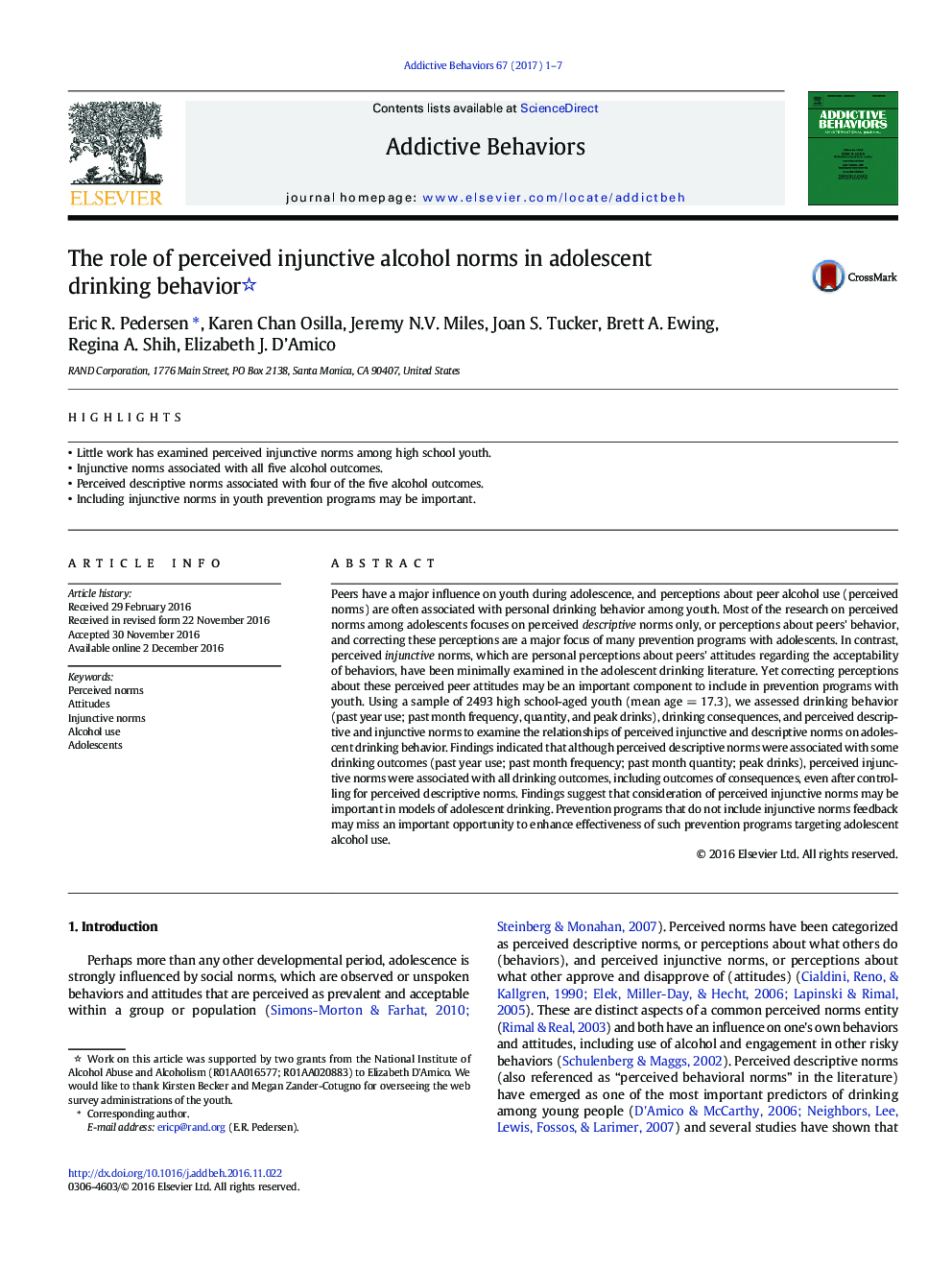| کد مقاله | کد نشریه | سال انتشار | مقاله انگلیسی | نسخه تمام متن |
|---|---|---|---|---|
| 5037831 | 1472504 | 2017 | 7 صفحه PDF | دانلود رایگان |
- Little work has examined perceived injunctive norms among high school youth.
- Injunctive norms associated with all five alcohol outcomes.
- Perceived descriptive norms associated with four of the five alcohol outcomes.
- Including injunctive norms in youth prevention programs may be important.
Peers have a major influence on youth during adolescence, and perceptions about peer alcohol use (perceived norms) are often associated with personal drinking behavior among youth. Most of the research on perceived norms among adolescents focuses on perceived descriptive norms only, or perceptions about peers' behavior, and correcting these perceptions are a major focus of many prevention programs with adolescents. In contrast, perceived injunctive norms, which are personal perceptions about peers' attitudes regarding the acceptability of behaviors, have been minimally examined in the adolescent drinking literature. Yet correcting perceptions about these perceived peer attitudes may be an important component to include in prevention programs with youth. Using a sample of 2493 high school-aged youth (mean age = 17.3), we assessed drinking behavior (past year use; past month frequency, quantity, and peak drinks), drinking consequences, and perceived descriptive and injunctive norms to examine the relationships of perceived injunctive and descriptive norms on adolescent drinking behavior. Findings indicated that although perceived descriptive norms were associated with some drinking outcomes (past year use; past month frequency; past month quantity; peak drinks), perceived injunctive norms were associated with all drinking outcomes, including outcomes of consequences, even after controlling for perceived descriptive norms. Findings suggest that consideration of perceived injunctive norms may be important in models of adolescent drinking. Prevention programs that do not include injunctive norms feedback may miss an important opportunity to enhance effectiveness of such prevention programs targeting adolescent alcohol use.
Journal: Addictive Behaviors - Volume 67, April 2017, Pages 1-7
